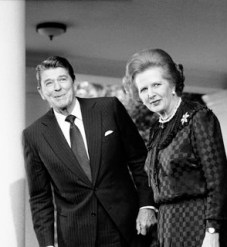Paula Span, in a recent article for her insightful New York Times blog, The New Old Age, considers the terrible stigma attached to dementia: “Alzheimer’s and other forms of dementia, to this day, carry a stigma that most other diseases—heart failure, for example—do not.”
To pursue her point, Span compares how the families of President Ronald Reagan and Britain’s Margaret Thatcher revealed diagnosis of the condition in both world leaders to the public. In Reagan’s case, the disclosure was contained in an open handwritten letter; Thatcher’s family, on the other hand, chose to avoid using the term dementia.
In my work at Charles E. Smith Life Communities, I continually observe how families differ in how they share the reality of a loved one’s dementia with friends and relatives. They seem to feel uncomfortable, embarrassed or pressed to explain why this has happened to someone long recognized for being so smart, vital, and competent.
But, Span hits the nail on the head when she writes this: “We know that dementia will become an increasingly common condition in coming years, that it’s a terminal disease which doesn’t respect the public stature or intellectual accomplishments of its victims (our emphasis), that it can cause families to grieve for the people they’ve lost long before they die.”
My advice is to be honest, willing to discuss the diagnosis with friends and relatives, and ready to shift the focus to the lasting abilities, not disabilities. As a society, this is what we must do.
Read “A Singular Life, an All Too Common End” by Paula Span at http://nyti.ms/1bCIDuM .



